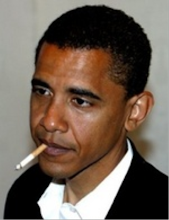From StLouisToday.Com
WASHINGTON — Three years ago, the national laboratory then headed by Steven Chu received the bulk of a $500 million grant from the British oil giant BP to develop alternative energy sources through a new Energy Biosciences Institute.
Chu received the grant from BP's chief scientist at the time, Steven E. Koonin, a fellow theoretical physicist whom Chu jocularly described as "my twin brother." Koonin had selected the Lawrence Berkeley National Laboratory at the University of California at Berkeley, over other universities in the United States and Britain, in part because of Chu's pioneering work in alternative fuels.
Today, Chu is President Barack Obama's energy secretary, and he spent Tuesday in Houston working with BP officials to try to find a way to stop the flow of oil from the ruptured well in the Gulf of Mexico.
Koonin, who followed Chu to the Energy Department, is recused from all matters relating to the disaster because of his past ties to BP, said Stephanie Mueller, an Energy Department spokeswoman.
The relationships among Chu, Koonin and BP illustrate the complexity of the ties between the company and the government now playing out along the Gulf Coast as they struggle to cope with one of the nation's worst environmental disasters. Just as the Pentagon and military contractors develop symbiotic business, technical and political interdependencies, the government in this case needs BP's offshore drilling technology and well-control equipment; the company needs the government's logistical and scientific expertise, including
that of Chu, a Nobel Prize-winning scientist.
Some critics say the Obama administration has relied too heavily on BP's assessment of the blowout and its solutions for addressing it. But government officials say that BP is legally responsible for plugging the well and cleaning up the mess. And they acknowledge that the government lacks the know-how to deal with the problem on its own.
There is no evidence that Chu or Koonin have represented BP's viewpoints in internal deliberations or sought to influence administration policy in a way that would benefit BP.
But John Simpson of Consumer Watchdog said: "From what I've seen, the Energy Department's response has been less than rapid to this oil spill. This whole thing just underscores that corporate interests have created, over time, these relationships that give them unfair access to policymakers."
Editors Note: Is it any wonder why BP can demand to see the Tax Forms of those who are being financially devastated by their mess in the Gulf prior to reimbursing them for losses? Considering BP was Obama’s #1 donor from the Oil industry and BP’s cozy relationship with Chu in the Obama Administration, it’s not difficult to understand why BP can demand the tax forms of private citizens at all.
















